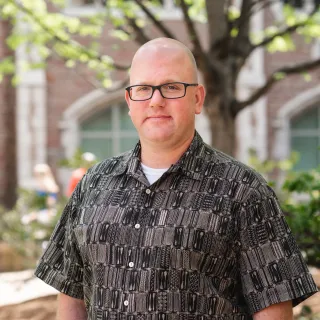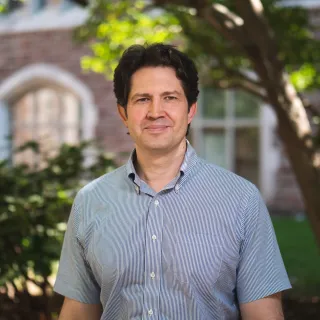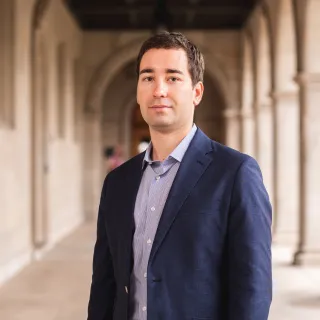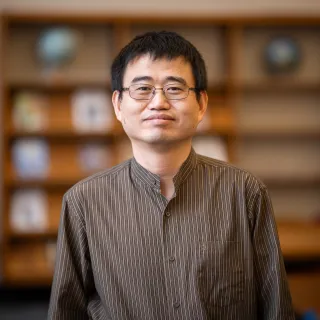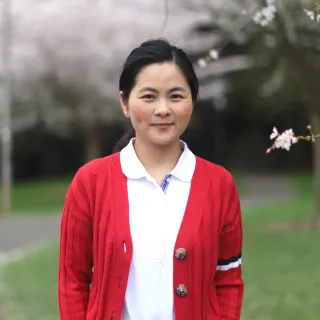Undergraduate Program Committees
Biophysics Intro Committee: Mikhail Tikhonov (Chair), Trevor GrandPre, Shankar Mukherji, Ralf Wessel
Physics Data Science Major Committee: Yajie Yuan (Chair), Zohar Nussinov, Saori Pastore, Maria Piarulli
Undergraduate Prize Committee: Francesc Ferrer (Chair), Mairin Hynes, Ben de Jonge, Maitreya Kundu
Undergraduate Advising Coordinator: Shaffique Adam
Graduate Program Committees
Thrust Advising Coordinator: Zohar Nussinov
Graduate Admissions Committee: Tansu Daylan (Chair), Ramanath Cowsik, Bhupal Dev, Jonathan Katz, Li Yang, Dmitry Chichinadze
Graduate Career Committee: Alex Seidel (Chair), Ramanath Cowsik; Graduate Students: Michael Abreu, Ben de Jonge, Mary Iskakova
Undergraduate & Graduate Recruitment Committee: Karthik Ramanathan (Chair), Alex Chen
Graduate Rotations Committee: Shaffique Adam
Departmental Committees
Colloquia Committee: Li Yang (Chair), Trevor GrandPre, Jonathan Katz, Zohar Nussinov, Sheng Ran; Grad Students: Graham Chambers-Wall, Maitreya Kundu, Aaroodd Ujjayini Ramachandran
Computer Committee: Alex Chen (Chair), Yajie Yuan, Sai Iyer; Grad Students: Will Charles, Seth Larner, Martin Luepker, Marion Sudvarg
Faculty Prize Committee: Bhupal Dev (Co-chair), Shaffique Adam (Co-chair), Karthik Ramanathan
Grant / Research Committee: Chuanwei Zhang (Chair), Jim Buckley, Henric Krawczynski, Kater Murch, Saori Pastore, Li Yang
Junior Faculty Development Committee: Willem Dickhoff (Chair), Erik Henriksen
Outreach Committee: Chong Zu (Chair); Graduate Students: Audrey Coleman (Student-Chair), Michael Abreu, Blake Bal, Graham Chambers-Wall, Ben de Jonge, Morgan Hopkins, Maitreya Kundu, Diego Lopez Gutierrez, Orion Lee, Janna May Angeles, Nathan Whitsett
Postdoc Committee: Chong Zu (Chair), Maria Piarulli, Ralf Wessel
Space Usage Committee: Karthik Ramanathan (Interim Chair), Todd Hardt, Henric Krawczynski, Saori Pastore, Alex Seidel; Graduate Students: Will Charles, Ben de Jonge, Seth Larner
Shop/Cryogenics Committee: Brian Rauch (Chair), Todd Hardt, Erik Henriksen; Graduate Students: Blake Bal, Argen Detoito, Hamta Farrokhi
Other Department Duties
Graduate Student Committees
Graduate Senator: Will Charles
BBQ Committee: Henry Webb (Chair), Dominic Bernardi, Nathan Whitsett
Climate Survey: Pazit Rabinowitz, Martin Luepker
Donuts & Coffee Committee: Zongli Wei, Michael Abreu
Faculty Meeting Representatives: Lucas Graham, Hamta Farrokhi, Seth Larner
Gradsem Committee: Lucas Graham, Martin Luepker, Nick Rackers
MTE Committee: Joe Glichowski, Bryce Wedig, Nathan Whitsett, Shravan Vengalil Menon
Picnic Committee: Michael Abreu, Argen Detoito, Hamta Farrokhi
PiB: Will Charles, Shannon Gould, Lucas Graham, Nathan Whitsett
Research Symposium (WUPRS): Jason Bub (co-chair), Wolfgang Zober (co-chair), Liam Brodie, Maitreya Kundu, Janna May Angeles





